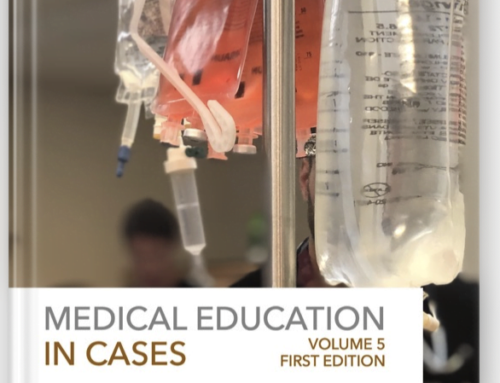 Welcome to season 5, episode 3 of the ALiEM Medical Education in Cases (MEdIC) series! Our team (Drs. Tamara McColl, Teresa Chan, John Eicken, Sarah Luckett-Gatopoulos, Eve Purdy, Alkarim Velji, and Brent Thoma) is pleased to welcome you to our online community of practice where we discuss the practice of academic medicine!
Welcome to season 5, episode 3 of the ALiEM Medical Education in Cases (MEdIC) series! Our team (Drs. Tamara McColl, Teresa Chan, John Eicken, Sarah Luckett-Gatopoulos, Eve Purdy, Alkarim Velji, and Brent Thoma) is pleased to welcome you to our online community of practice where we discuss the practice of academic medicine!
This month, we present a case of a junior faculty member who is apprehensive about presenting at M&M Rounds after a recent “public shaming” of one of his fellow colleagues.
MEdIC: The Case of the M&M Shame Game
By Tamara McColl MD, FRCPC
Stefan groaned as he emphatically closed his laptop and rested his head on the desk in the physician office.
“What’s this all about?!” chuckled Meredith. “You looking at your bank account statements?”
“No… worse,” sighed Stefan. “I’ve been scheduled to present M&M rounds in 2 months. After what happened with Ron’s case, I’ve just been feeling sick about the thought of having to present in front of our group. How do I spin my case in such a way that I avoid the disaster that ensued after his presentation?”
Stefan was relatively new to the department and had attended his first M&M session last month when Ron, a mid-career emergency physician, presented a fairly serious adverse clinical outcome in a patient he had treated. He had outlined a case in which a known drug seeker’s back pain was not thoroughly investigated and led to a missed spinal epidural abscess with subsequent neurologic deficits.
Stefan had attended the rounds and had thought to himself, “This is a great case. I could have easily missed this diagnosis as well. We’re all human and humans make mistakes. We often tend to downplay the symptoms of our frequent flyers and drug seekers.” He was waiting for a constructive discussion from the group and instead witnessed a scenario akin to a firing squad in which the senior physicians took their turns shooting bullets at their vulnerable colleague who had just unloaded the most uncomfortable details of a case he inevitably already lost sleep over.
Stefan had approached a few staff after rounds, voicing how painful it was to watch the public shaming of their fellow colleague. The general consensus was that “this is how it’s always been. This is what M&M Rounds are all about.”
“So what are you going to do?” asked Meredith, looking genuinely concerned.
“I don’t know if there’s much I can do. I suppose I’ll prepare as well as I can and just roll with the punches when they inevitably come,” he replied with a note of apprehension. Stefan left the department still thinking about whether the case he chose will result in his own public humiliation and how his colleagues may regard him as less of a physician after it’s all over.
Discussion Questions
- As a new staff to the department, should Stefan speak up about his M&M concerns? How should he go about it?
- Realizing that the culture is a little outdated at his new site, how can Stefan initiate movement towards positive change and help champion a new process of M&M case review?
- How can we make M&M rounds less threatening so as to encourage faculty to present their difficult cases?
Weekly Wrap Up
As always, we will post the expert responses and a curated commentary derived from the community responses 2 weeks after the case is published.
Our 2 experts for this month’s case will be:
- Dr. Shawn Mondoux (along with colleagues Drs. Edmund Kwok and Lisa Calder)
- Dr. Jeremiah Schuur
On December 15th, 2017 we will post the curated commentary and expert responses to this case! After that date, you may continue to comment below, but your commentary will no longer be integrated into the curated commentary. That said, we’d love to hear from you, so please comment!
All characters in this case are fictitious. Any resemblance to real persons, living or dead, is purely coincidental. Also, as always, we will generate a curated community commentary based on your participation below and on Twitter. We will try to attribute names, but if you choose to comment anonymously, you will be referred to as your pseudonym in our writing.
Inspired by the Harvard Business Review Cases and initially led by Dr. Teresa Chan (@TChanMD) and Dr. Brent Thoma (@Brent_Thoma), the Medical Education In Cases (MEdIC) series puts difficult medical education cases under a microscope. On the last Friday of the month, we pose a challenging hypothetical dilemma, moderate a discussion on potential approaches, and recruit medical education experts to provide “Gold Standard” responses. Cases and responses are made available for download in PDF format – feel free to use them! If you’re a medical educator with a pedagogical problem, we would love for you to get involved in the MEdIC series! Send us your most difficult dilemmas (guidelines) and help the rest of us bring our teaching to the next level.




